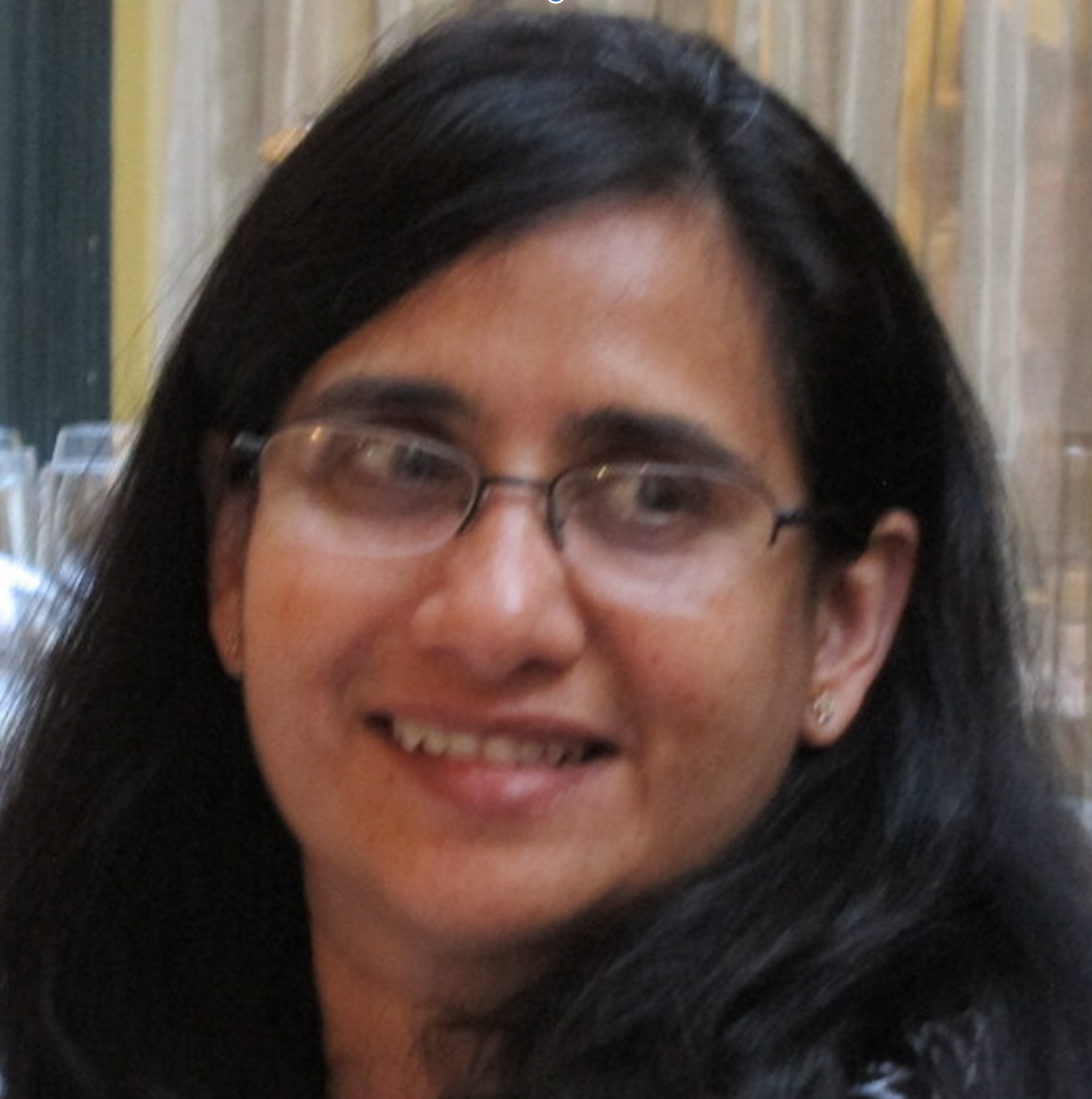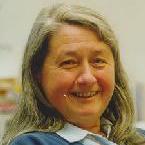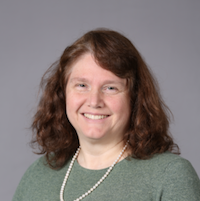Future of Life in A Hybrid World Task Force
Established in fall 2021, the Future of Life in a Hybrid World task force will lead CCC activities related to the Internet of Things (IoT), aging in place, robotics, and related topics.
Current Members
 Sujata Banerjee
Sujata Banerjee
VMware
Sujata Banerjee Website

Sujata is a senior staff researcher with responsibility as a research director for VMware external research. Her expertise is in topics related to software defined networking and network functions virtualization, and she is broadly interested in network automation and performance. Prior to joining VMware in January 2017, she was a distinguished technologist and research director at Hewlett Packard Enterprise Labs, leading a network systems research group which conducted research on enterprise, service provider and datacenter networks. Prior to her industrial research career, she also held a tenured Associate Professor position at the University of Pittsburgh. She served as the technical co-chair of the 2018 USENIX NSDI and the 2017 ACM Symposium on SDN Research (SOSR) conferences and the general chair of ACM HotNets 2017.
She has been on the technical program committees of several conferences such as ACM SIGCOMM, ACM CoNEXT, ACM HotNets, USENIX NSDI, IEEE ICNP and IEEE Infocom. She received the Ph.D. degree from the University of Southern California (USC) and the B.Tech. and M.Tech. degrees from the Indian Institute of Technology (IIT) Bombay in Electrical Engineering. She holds 33 US patents and is a recipient of the U.S. National Science Foundation (NSF) CAREER award in networking research and two best paper awards. She also serves on the Corporate Advisory Board of the USC Viterbi School of Engineering. She was honored to be named in the list of 2018 N2Women: Stars in Computer Networking and Communications.
 Maria Gini
Maria Gini
University of Minnesota
Maria Gini

Maria Gini received a degree in physics from the University of Milan in 1972. From 1974-1979 she was a Research Associate and from 1980-1982 a Senior Research Associate in the Department of Electronics in Politecnico of Milano in Italy. She then joined the Department of Computer Science at the University of Minnesota in 1982 as an Assistant Professor. She became the first female to join the department. While there she was promoted to Associate Professor in 1988 and to Professor in 1997. In 2001 Gini received the Distinguished Women Scholars Award from the University of Minnesota.
Since 2005 she has also been Associate Chair of the Department of Computer Science and Engineering. She was named an AAAI fellow in 2008 “for significant contributions to coordination and competition in multirobot and multiagent systems, for leadership in the AI community, and for inspiring the next generation”. In 2011, she received the Mullen-Spector-Truax Women’s Leadership Award from the University of Minnesota, presented annually to “a faculty or staff woman at the University who has made outstanding contributions to women’s leadership development”. Gini was also named an IEEE fellow in 2018. As of 2019, she has graduated 34 Ph.D students as well as nearly 100 graduate students.
 Holly Yanco
Holly Yanco
University of Massachusetts Lowell
Holly Yanco

Dr. Holly Yanco is a Distinguished University Professor, Professor of Computer Science, and Director of the New England Robotics Validation and Experimentation (NERVE) Center at the University of Massachusetts Lowell. Her research interests include human-robot interaction, evaluation metrics and methods for robot systems, and the use of robots in K-12 education to broaden participation in computer science. Application domains for her research include assistive technology, urban search and rescue, manufacturing, and exoskeletons. Yanco’s research has been funded by NSF, including a CAREER Award, the Advanced Robotics for Manufacturing (ARM) Institute, ARO, CCDC-SC, DARPA, DOE-EM, ONR, NASA, NIST, Google, Microsoft, and Verizon. Yanco is Co-Chair of the Massachusetts Technology Leadership Council’s Robotics Cluster, served as Co-Chair of the Steering Committee for the ACM/IEEE International Conference on Human-Robot Interaction from 2013-2016, and was a member of the Executive Council of the Association for the Advancement of Artificial Intelligence (AAAI) from 2006-2009. Yanco has a PhD and MS in Computer Science from the Massachusetts Institute of Technology and a BA in Computer Science and Philosophy from Wellesley College.
Resources curated for this task force include:
Workshops
The CCC Hybrid Workshop on Best Practices for Hybrid Workshops
This workshop was held on October 14-15, 2021 and a workshop report is in progress. Learn more about the motivation for the workshop below:
The 2020 pandemic has catalyzed the transition to remote work but even prior to the pandemic, supported by new technologies (faster Internet connections, powerful end-user computing and communication devices, cloud applications, etc.), there has been a slow and steady move to a distributed and remote workforce. Increasingly, in many sectors people can literally work from anywhere thanks to the advances in computing and communications. Some of the scenarios that have become very familiar to many in the last decade include:
- Catching up on work in the evening from home
- Watching an oversubscribed lecture on-line
- Participating in a meeting remotely
- Developing code in a large software project with a distributed team
Even with the technological advances and adoption of remote work, there are some serious challenges that remain. In particular, hybrid environments in which there are clusters of participants who are co-located physically while others are distributed across the world, are far from perfect. Hybrid environments present both technological and social challenges, including inequity issues across a number of dimensions. We believe our future is hybrid. Towards that end, we would like to plan a Computing Community Consortium (CCC) visioning activity on the technical, social and equity challenges that hybrid environments present. And what better way to experience and experiment than run the visioning in a hybrid environment? This is what we mean by “Meta Hybrid Visioning.”
Resources:
General Articles and Blogs
- 13 Rules for Successful Hybrid Meetings: Lessons from 100 Articles
- Distance matters
- New Microsoft Study of 60,000 Employees: Remote Work Threatens Long-Term Innovation
- My hybrid conference wishlist
Accessibility
- SIGACCESS Guide to Accessible Virtual Conferences
- SIGACCESS Guide to Accessible Conferences
- Behind the scenes of axe-con: building a large, accessible
- Accessibility in Third-Party Products and Services
Technology
Sustainability
- Please let us know if you have recommendations
Social Factors
- Social Presence in Virtual Event Spaces – CHI Presence Workshop Submission Draft
2020 Quadrennial Papers
Health IT Resources
- The Role of Robotics in Infectious Disease Crises workshop report
- Response to NITRD draft Federal Health Information Technology Research and Development Strategic Framework
- The Discovery and Innovation in Smart and Pervasive Health workshop report
- The Promoting Strategic Research on Inclusive Access to Rich Online Content and Services workshop report
- The New Age of Computing and the Brain workshop report
- The Trans-NIH/Interagency Workshop on the Use and Development of Assistive Technology for the Aging Population and People with Chronic Disabilities white paper
- The Computing and Healthcare: New Opportunities and Directions workshop report
- The Information Technology Research Challenges for Healthcare: From Discovery to Delivery white paper
- The From Data to Predictions and Decisions: Enabling Evidence Based Healthcare white paper
- Quality of Life Technologies in Supporting Family Caregivers
- Intelligent Systems for Assessing Aging Changes: Home-Based, Unobtrusive, and Continuous Assessment of Aging
- Wireless Sensor Networks for Healthcare
- Sensor Technology to support Aging in Place
- Generation Smart-phone






